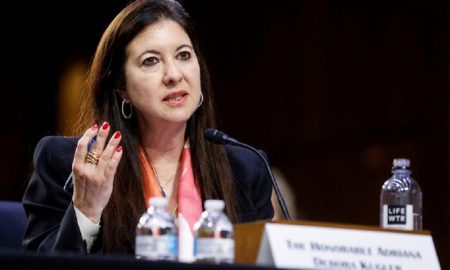
These Golden Rules will Make The Life of Early Retirees, Easy

Can you afford to retire early but are also weary of the trade-offs; moving to a smaller home or restricting your hobbies? Retiring early is something that a lot of us want to do, but only a few of us are fortunate enough to, given the level of financial security they have. You need to know certain facts if around 60, but some basic game rules have changed for Americans.
1) Don’t fear losing Health Insurance
Health insurance was a challenge with conditions like diabetes or heart disease declaring you uninsurable, while healthy over-50’s paid much more than youngsters for the same coverage. Health reforms changed that and irrespective of your health, you can have a comprehensive insurance policy through the state online exchanges with age determining premiums.

What to Do:
Visit healthcare.gov to find your state options and understand that the premium is only the sticker price and 50% buying own insurance today, qualify for a subsidy calculated on what percentage of your salary goes towards insurance. A person who retires early with more premium qualifies for a break, particularly if retiring means spending wisely. Obamacare removed non-rejection or more charges for pre-existing health conditions, not cheaper than that available on the private market. Price out both options before buying in.
2) Early retirement means continuing Trade-offs?
What to Do:

3) Moving makes a Difference
The recent housing markets recovery provides confidence and funds to retire early. Don’t count on housing booms to pad up net worth. Set realistic expectations from your house sale, but plan assets prudently which may mean leaving your house.
What to Do:
Lose some bedrooms if selling in a strong market now and buy a smaller house, thereby adding to your savings or wiping out past debts. Retiring early means learning to live frugally by cutting housing costs. Or move to a town with low property taxes and lower living costs, as also cheaper homes. Whether downsizing locally or cross-country, never trade repair costs for steep association fees.
4) Don’t blow it all early

Early on in retirement, you indulge on costly hobbies, travel, or on eating out. After 75, your outlays drop, even after health care spending. People aged 65 to 74, spend 37% more than those after 75 do, as per Consumer Expenditure Survey findings. Retire young but remember you starting the free-spending years early when crafting an income is difficult as Social Security is possible at age 62, with lock-in at higher payment if waiting for full retirement age to claim (67 for those born in or after 1960). If eligible for a pension and collecting before 65, you settle for 30% less, leaving you dependent on your investment income.
What to Do:
Be prudent about withdrawals. With low bond yields, a portfolio withdrawal rate of 3% adjusted for inflation is safer than the traditional 4% rule for 30 years and not the 35-40 year time horizon of early retirees for whom, a safer rate dips to 2.6%. When living entirely on withdrawals, 2% to 3% will not matter. Boost your withdrawal rate and you risk of running out of money. To improve prospects, manage on less. A higher withdrawal rate early on ensures cut-backs when Social Security begins. As spending patterns and market returns often vary, reassess your plans annually.
5) A second pay-check does come in handy

More inFinancial Adviser
-
Will Governor Kugler Push for More Rate Cuts as Inflation Eases?
Federal Reserve Governor Kugler supports the central bank’s recent interest rate cut and plans to advocate for more reductions if inflation...
October 18, 2024 -
Four Seasons Hotel Milano Introduces Personal Styling With Vittoria de Carlo
When it comes to fashion, Milan is unmatched, blending elegance with avant-garde trends. To uncover the heart of Milan’s fashion scene,...
October 9, 2024 -
The Most Successful Female Celebrity Brands
In today’s world, many female celebrities are not just shining in the entertainment industry but also making significant strides as entrepreneurs....
October 1, 2024 -
How to Incorporate Sustainable Outdoor Activities Into Your Travel Adventures
Opting for sustainable outdoor activities may seem challenging at first, but it’s an essential choice for preserving our environment. While integrating...
September 26, 2024 -
Here’s How You Can Get Low Interest on Loans in 2024 & Beyond
How to get a low-interest loan? Well, it is a question many Americans seek an answer to. After all, interest rates...
September 20, 2024 -
How to Buy the Perfect Men’s Belt Online
Selecting the right belt size might seem straightforward, but it can be more nuanced than simply matching it to your pants...
September 12, 2024 -
Why Joey Lawrence and Samantha Cope Parted Ways After 2 Years of Marriage
In a surprising turn of events, Joey Lawrence’s divorce from Samantha Cope has become a topic of widespread discussion. The couple,...
September 2, 2024 -
Must-Visit Tourist Attractions in Brussels
Exploring Fairytale Cities (Bruges and Ghent) One of the best things to do in Brussels is to take a day trip...
August 28, 2024 -
What Is a Write Off and How Companies Use Them?
Understanding the Nuances of Write-Offs Understanding the nuances of what is a write-off is essential for businesses. While the basic concept...
August 23, 2024














You must be logged in to post a comment Login